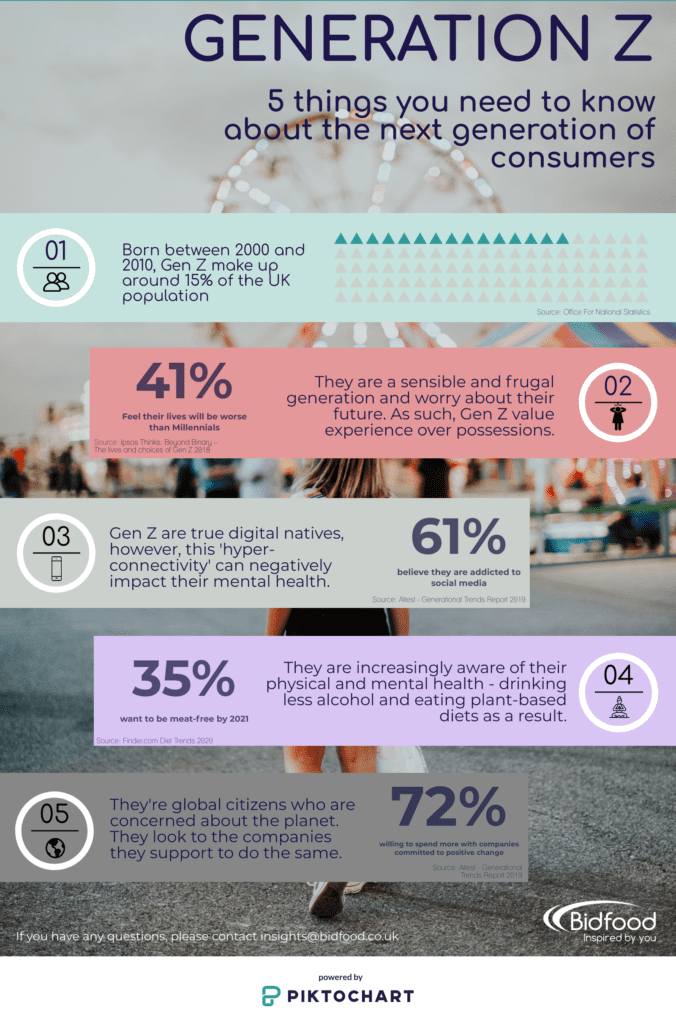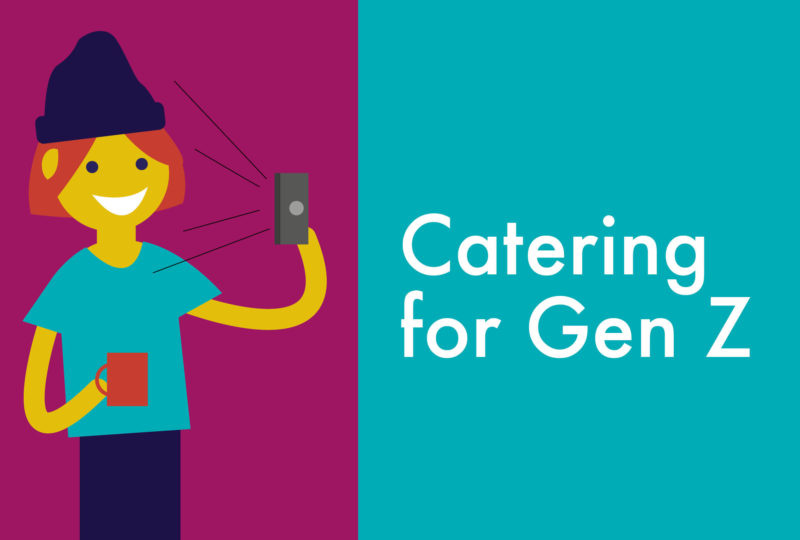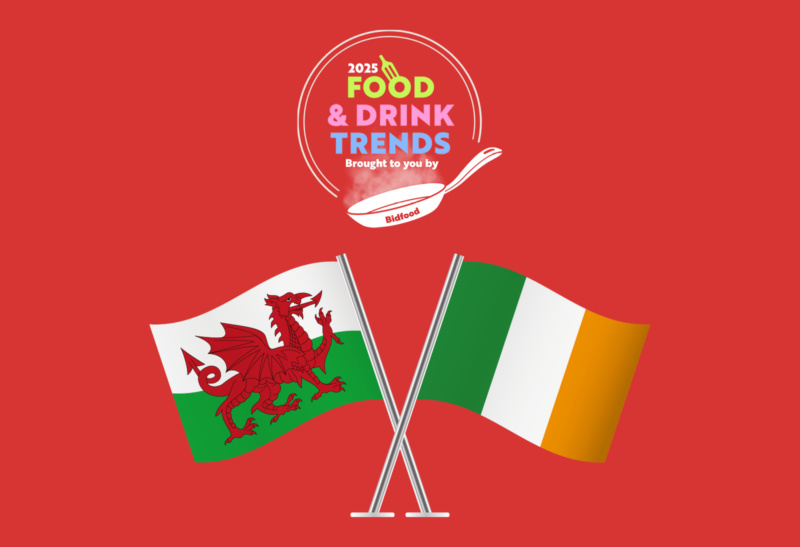Renting a VHS from Blockbuster, Spice Girls on cassette, Billy Bear ham, Sunny Delight, Potato smilies and McDonald’s birthday parties. The 1990s was, in my millennial opinion, the greatest decade. I look back fondly on this time before the internet was everywhere, mobile phones were an extension of our bodies, the pressure of social media and the sugar tax. Those years have shaped my attitudes and beliefs (and given me a serious penchant for Pop-tarts!).
But what about the next generation, Generation Z?
Born between 2000 and 2010, they have grown up in a vastly different world to just the generation before them. But with Gen Z making up around 10 million of the UK population[1], it is important to know about their own attitudes and beliefs.
Generation Z’s childhood has been shaped by the advent of social media – Facebook began in 2004 – the rise of the smartphone when the iPhone launched in 2007, as well as turbulent financial and political times. Financial crises, Brexit and Trump politics have dominated Gen Z’s formative years.
In our recent report, we’ve identified 4 key themes that can help us to understand this fluid generation.
#1 They are a sensible lot.
Having grown up in a time of financial and political crises, Gen Z are more frugal and practical than teenagers before them. They’re also really worried about their futures, with around two in five (41%) feeling that their lives will be worse than Millennials[2]. This stress is compounded by expectations of job insecurity with nearly two thirds of them feeling the pressure to make money and be successful[3].
But when it comes to food and drink, Gen Z are willing to loosen the purse-strings. Some studies even suggest that eating out is a higher priority for youngsters than fashion, with older Gen Z claiming they are more likely to spend their disposable income dining out[4]. For this generation, experience is key, and eating out provides that much coveted ‘social currency’ through foodie pictures on social media.
#2 They are health aware.
Gen Z are increasingly aware of their own physical and mental health. Despite being described as the most overweight/obese generation yet, this generation are increasingly trying to make healthier choices.
These choices include an openness to plant-based diets, perceived to be a healthier, and a general decline in drinking alcohol. In fact, Gen Z teenagers are half as likely to have tried alcohol as Millennial teenagers (36% in 2016 vs. 72% in 2000[5]). However, some will still feel self-conscious when not drinking with their peers. It is therefore key for outlets to offer decent low/no alcohol alternatives. Or, for the older Gen Z, to go as far as offering alcohol free bars, such as Listen Bar in the US.
#3 They are digital natives.
This generation are the first generation to have grown up as true digital natives. Nearly all of them go online daily (94%[6]), using at least one form of social media a day. They are a digitally savvy bunch and they know not to trust everything they see online. This is why recommendations and reviews from peers and influencers hold real weight with Gen Z.
However, with technology so intertwined with their daily lives (for better or for worse) it means that a smooth technological experience is a must when eating out and/or ordering food and drink. Younger generations are more likely to:
- Seek out menus and allergy advice online
- Search for pictures of particular dishes on social media
- Check reviews online
- Book and order food online or via apps
- Expect a smooth payment experience either via app or contactless/mobile payments
These are the tech-hygiene factors for younger generations.
#4 They are global citizens.
With the ever increasing ease of travel and growing up in a hyper-connected society, Gen Z are used to a truly global, borderless world.
This global outlook means Gen Z care deeply about issues facing our planet. Environmental and ethical issues such as climate change, single-use plastics and animal welfare are a major concern for this generation. The Blue Planet episode was a pivotal moment in society and a defining moment in the lives of many a Gen Z. As such, they’ve seized this opportunity to have their voices heard. There is no better poster-child for this socially conscious generation than Greta Thunberg. She has yielded her youth as a powerful tool and we can expect her peers to follow suit through further action.
This social consciousness means that, when making purchasing decisions, Gen Z are looking for sustainable options as well as companies or brands that chime with their beliefs. In fact, 72% of Gen Z say they are willing to pay more for products from companies that are committed to positive social or environmental impact[7].
And when eating out, their environmental concern means plant-based options are increasingly popular with younger generations. However, this is not at the expense of indulgence or convenience. The dirty vegan trend is great for Gen Z and the raft of recent plant-based fast food launches are attractive options for younger and older generations alike.
Gen Z are the consumers and employees of today and the future. It is essential that we are ready for the most practical, healthy, digitally savvy and socially conscious generation yet.
Find out more with our infographic below or get in touch at insights@bidfood.co.uk for the full Gen Z report.

This is part of our “through the generations” blogging series, where Lillie will be exploring what shapes each of the generations.
[1] Office for National Statistics – 2018
[2] Ipsos Thinks: Beyond Binary – The lives and choices of Gen Z 2018
[3] Ipsos Thinks: Beyond Binary – The lives and choices of Gen Z 2018
[4] Experian – Spending Power Index 2019
[5] Ipsos Thinks: Beyond Binary – The lives and choices of Gen Z 2018
[6] Chloe Combi – Gen Z Their Voices, Their Lives 2015
[7] Nielson – Green Generation 2015



